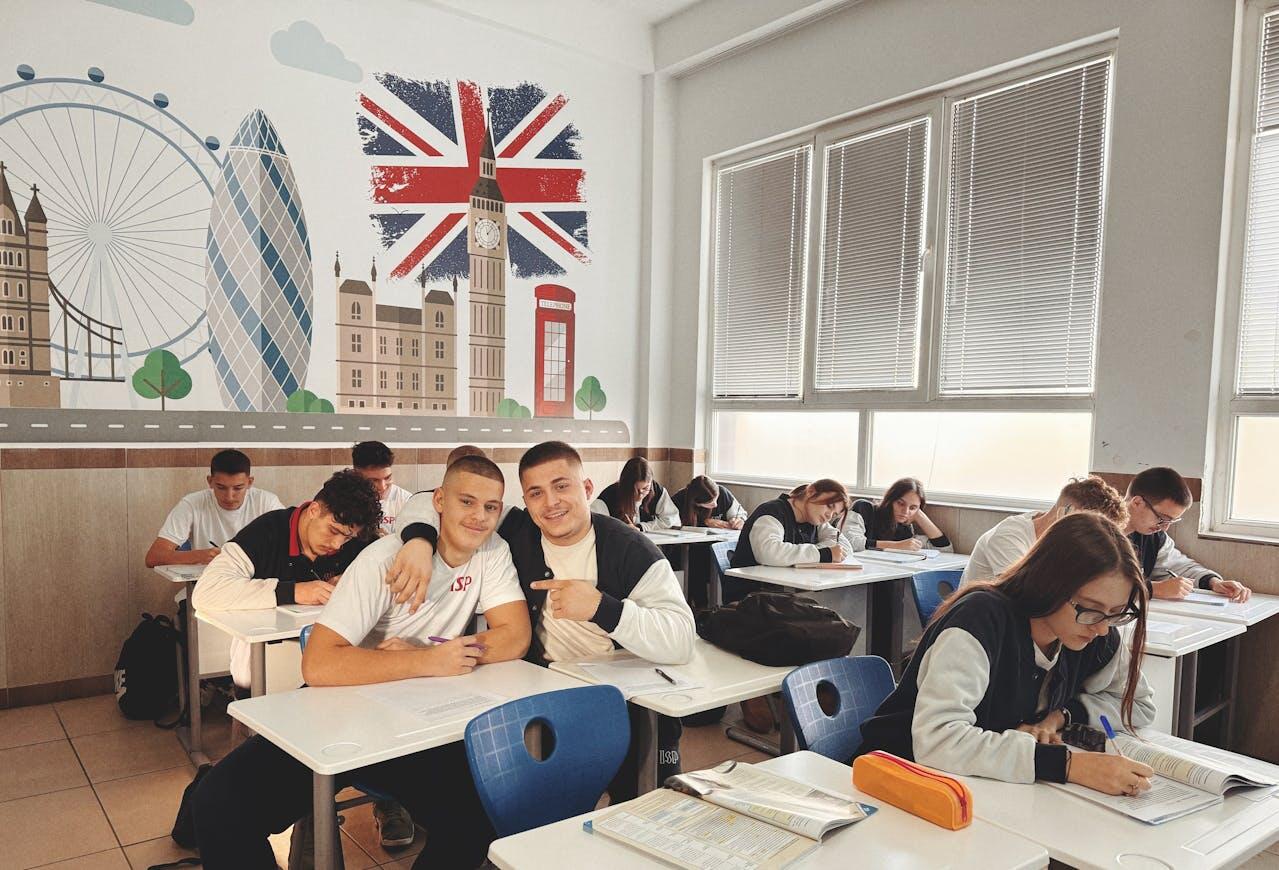You might be led to believe that having no GCSEs to your name means that you have no hope of further academic success, or that getting into university is virtually impossible. While universities usually require a passing grade in GCSE Maths and English, it's certainly possible to get in with no GCSEs and there are still many career opportunities open to you.
Here are the different options open to you if you don't have your GCSEs:
- Consider preparing for and sitting the GCSE exams
- Take an alternative qualification route, such as an apprenticeship programme or vocational course
- Apply for further education without GCSEs: you may be able to gain entry into some universities by taking an Access to Higher Education course
- Get work experience and develop your professional skills
- How to apply to college without GCSEs and course options available

1. Sitting the GCSE Exams

GCSEs are typically taken by students aged 14 to 16, covering a broad range of subjects, including core subjects like English, Mathematics, and Science.
While not having GCSEs might seem like a significant barrier, it’s important to remember that it’s never too late to prepare for and sit these exams.
Preparing for and sitting the GCSE examinations is a great option if you don't already have a great deal of qualifications.
This is because there are no entry requirements for the GCSE examinations, so whether you've left school or are looking to change career paths, then getting your GCSEs is a great starting point. You can either :
Retake GCSEs to improve your grades.
sit exams in new subjects.
Except for core subjects like English and maths, students select their GCSE courses/exams. Typically, they choose between eight and ten academic subjects, some of which they might do better than others. So, the option to resit or choose different subjects could lead to better results.
Can I Take the GCSE Exams As An Adult?
You'll find no age requirements to sit the GCSE exams. Anyone can resit the exams or take the exam for the first time, regardless of age or life experience. This clip gives you reasons to consider sitting GCSEs as an adult, as well as ways to go about them.
Self-study for the GCSE Exams
For those looking to take GCSEs later in life, there are several flexible options available. One popular route is self-study, using these tools:
It's possible to study for the GCSE exams by yourself. Many individuals choose to self-study for their GCSEs for a variety of reasons, including flexibility and the ability to tailor their learning to their own pace and schedule
GCSE Tutoring & Adult classes
Another popular option for those looking for more support or prefer a more social learning environment is to attend evening classes held at your local school or adult learning centre. Check online for local centres offering GCSE instruction in the subjects you're interested in.
Online tutoring platforms like Superprof are also excellent resources, offering one-on-one tutoring to help you master the GCSE curriculum at your own pace with the support of an academic tutor.

Top GCSE Revision Resources
| 📚Resource Name | 🔎Description |
|---|---|
| BBC Bitesize | Free online study resource offering revision guides, practice questions, and interactive lessons. |
| Khan Academy | Offers free online courses and practice exercises for Maths and Science subjects. |
| Seneca Learning | Provides free interactive courses covering all GCSE subjects with quizzes and detailed feedback. |
| AQA Exam Board | Offers past papers, specifications, and study resources for GCSE subjects offered by AQA. |
| Edexcel Exam Board | Provides access to past papers, examiner reports, and subject-specific resources for GCSE exams. |
| OCR Exam Board | Offers specifications, sample assessment materials, and past papers for GCSE subjects. |
| Quizlet | A study tool that allows users to create and share flashcards and practice quizzes for GCSE topics. |
| Gojimo | A mobile app offering quizzes and revision material for various GCSE subjects. |
| Revision World | Provides free GCSE revision resources, including notes, quizzes, and past papers. |
| Superprof | Offers online tutoring services with experienced tutors in all GCSE subjects. |
University Without GCSE: What Does the Law Say?
In 2013, the government passed a law that insisted every student must stay in education until they turn 18. That suggests every pupil must follow the GCSE-to-A-Level pathway. However, this law has no enforcement mechanisms.
Besides, 'education' doesn't always mean 'school'. One can gain an education through a formal apprenticeship. You might even work full-time, as long as you take accredited courses while you earn. These pathways also allow you to aim for university education.
2. Take An Alternative Qualification Route
If the idea of sitting GCSE exams doesn’t appeal to you, there are alternative qualification routes such as apprenticeship programmes and vocational courses. These options provide practical, hands-on learning experiences and can lead directly to employment.
Apprenticeships
A balanced combination of work & study
Vocational Courses
Classroom-based study with practical learning
Apprenticeships combine work and study, allowing you to earn a salary while gaining practical experience in your chosen industry. Apprenticeships are available in sectors like engineering, healthcare, and information technology.
Apprenticeships offer a structured path to gaining industry-specific skills. This video discusses some of the benefits of doing an apprenticeship. Watch to discover why the apprenticeship route is growing in popularity in the UK.
During an apprenticeship, you'll spend part of your time working and the other part studying towards a relevant qualification. This approach is ideal for those who prefer learning by doing and want to enter the workforce quickly. Here are some of the sectors you can find apprenticeships in in the UK:
- engineering
- energy
- law
- business administration
- financial services
- education
- IT apprenticeships
- marine apprenticeships
- accounting
- data analysis
- hospitality
- cybersecurity
Vocational courses, such as those in manufacturing and construction, focus on specific trades or professions. They are typically offered at further education colleges. These courses provide specialized training in areas such as plumbing, electrical work, hairdressing, and catering.
Vocational qualifications, such as BTECs, NVQs, and Diplomas, are designed to prepare you for specific careers by combining theoretical knowledge with practical skills. They are often shorter than traditional academic routes, allowing you to gain qualifications and start working sooner.
This table compares and summarises vocational courses and apprenticeships, their benefits and limitations.
| 🏫Feature | 👷♀️Apprenticeships | 🔨Vocational Courses |
|---|---|---|
| Learning Style | Combination of work and study | Classroom-based with practical training |
| Earnings | Earn a salary while training | Typically no earnings; may incur course fees |
| Duration | 1 to 5 years depending on the level | Varies (from a few months to 2 years) |
| Qualifications | Gain nationally recognized qualifications and skills | Gain specific trade qualifications (eg BTECs, NVQs) |
| Career Pathways | Direct entry into industry; often leads to full-time job | Direct entry into specific trades or professions |
| Entry Requirements | Varies by apprenticeship level and employer | Varies by course level; often requires basic education |
| Industries Available | Wide range (engineering, healthcare, IT, etc | Specific trades (plumbing, electrical work, catering, etc |
| Practical Experience | High; majority of training is on-the-job | Moderate; practical training in simulated environments |
| Funding and Costs | Employer and government-funded; little to no cost | May require tuition fees; financial aid may be available |
| Flexibility | Less flexible; tied to employer's schedule | More flexible; can often choose part-time or full-time |

3. Apply to University Without GCSEs
Typically, universities will require you to attain a set number of UCAS Tariff points in order to be admitted. Entry requirements depend on the institution, but there are some general rules you can go by.
UCAS points are gained through advanced-level qualifications - A-levels and equivalents - and will determine which universities you can choose from.
Most universities will also expect you to have passed at least GCSE English and Maths. However, as we’ll see later on, this isn’t necessarily a deal breaker in some cases.

Aside from how you have performed academically in secondary school, universities will also take a variety of other factors into account to decide whether they will accept a candidate's application. This is where you should focus most of your efforts.
If you have no GCSEs but want to go to university, your best bet is to make your application stand out in other areas.
Universities are interested in your aptitude for the specific course you are interested in taking. For example, if you want to study Photography, and you have a strong personal interest in the subject, create a portfolio to impress the admissions staff.
By going above and beyond, you will earn extra favour with the university. You can seek out extracurricular activities associated with the course you want to apply for. Such efforts might prove critical for schools to accept you without any GCSEs to your name.
Job applicants with the strongest credentials and qualifications tend to get preference.
One way to think of applying to uni is like applying for a job. Those who have relevant experience and can show they´re a good fit for the position are hired. And, if you've no GCSE college experience? That doesn't keep you out of the running.
You won’t be able to hide the fact that you don’t have the GCSEs most universities ask for. However, you can develop your skills and gain relevant experience in the subject you want to study. These steps show how you can give yourself a fighting chance.
How Important are GCSEs for University?

So just how important are GCSEs for getting into university? I’d be lying if I said GCSEs aren’t a huge factor in university admission. Universities need some sort of indication of how you are going to perform in your A-Levels.
UCAS points can play a big role too. Find out here if GCSE grades count towards them.
That being said, there are other routes you can take to prove to universities that you have what it takes to do well in an academic setting. So in this scenario, it wouldn’t be the end of the world if your GCSEs weren’t up to the standard the university expected.
If you don’t have any GCSEs or some other form of academic qualification, you’ll probably struggle to find a university that will open its doors for you.
This is because studying under pressure is an indicator for whether you will be successful at university. If you struggle with the self-discipline needed for independent learning or the pressure of meeting tight deadlines, university might not be the best option for you.
Not everyone needs to go to university. We can find plenty of arguments as to why you should stop and consider whether it is a move you want to make.
To find out more about how important these GCSEs are for getting into university, you can read our article on the topic. If everything you've read so far hasn't convinced you.
If you are set on going to university without any GCSEs though, then you might be interested in some of the following alternate paths you can take. Here are your most viable options.
Take the Functional Skills Qualification
It might surprise you to learn that you can actually pass GCSEs without having the GCSEs. You can do so through an alternative qualification called Functional Skills that can bring you up to the equivalent of a C grade in Maths, ICT, and English.
Passing these 3 subjects at the GCSE level is huge in securing a place at university, so it’s well worth looking into.
By passing the Level 2 functional skills course, you can get the C grade you so sorely need to boost your university application, and you needn’t worry anymore about how universities will view your lack of GCSEs.
The best part about Functional Skills?

It only takes a few weeks to complete the courses! To get started, you’ll need to jump through a couple of hoops. Namely enrolment, and a couple of assessments, then you’re ready to go. Courses consist of:
- online or in-person training
- practice exam papers
- end-of-course exam
- assessment feedback, based on your work.
Understandably, these Functional Skills courses can be stressful, given that you might depend on them for your successful admission into your university of choice.
That’s why it might be worth considering working with one of our qualified private tutors here at SuperProf. Our teachers can help guarantee your successful completion of a course such as those we just mentioned. Check for tutoring classes in the UK here.
Aside from the cash investment, you will need to check with your preferred university to make sure they accept them as GCSE equivalents.
One website where you can enrol in a Functional Skills course is The Learning Station. You can browse the various subject courses, and see which ones you’re interested in before making the investment. It really is as simple as that, making it an incredible backup option for GCSEs.
On the other hand, if the issue is that you have lost your GCSE certificate, you have a solution.

Consider a Foundation Degree
Another option open to you if you want to go to university, but don’t have any GCSEs, is to look into foundation degrees.
A foundation degree is a course offered by universities which will typically last 2 years, with the option to do another year for the full honours degree.
To understand the benefits (and drawbacks) of aiming for such a degree, we put their facts side-by-side.
Standard university degree
- typically must have GCSEs
- uni entry has high requirements
- entry is highly competitive
- must declare a major
- can lead to an honours degree
- academic achievement important
Foundation degree
- GCSEs not required
- entry requirements are minimal
- entry is more relaxed
- no need to decide on a major
- can lead to an honours degree
- relevant industry experience stressed
The great thing about doing a foundation degree is that you will get the full university experience with everything that entails, so you can make the most of your further education. For help and support in attaining this goal, check out a private tutor here on Superprof.
4. Go to College Without GCSEs
Finally, if you're after further education and better employability, you shouldn’t rule out going to college instead of university.

College is meant for those wanting to acquire specific skill sets for jobs, or those who want to boost their academic credentials before heading off to university at a later stage.
At college, you can expect to be taught practical skills. This is ideal if you are looking to enter a hands-on profession such as engineering or plumbing, where such skills are valued more than the theoretical side of things.
Here are the options available to you:
| Course Type | Description | Examples |
|---|---|---|
| Access to Higher Education | One-year diploma equivalent to 3 A-levels, designed for adults returning to education. | Available at colleges like Fircroft College and Northern College |
| BTEC Diplomas | Vocational qualifications focusing on practical skills in various industries. | Offered in fields such as Health & Social Care, Business, and Engineering |
| Apprenticeships | Combine work experience with study, leading to qualifications in specific trades. | Available in sectors like Construction, IT, and Healthcare |
| Functional Skills Courses | Courses in English, Maths, and ICT, often accepted as GCSE equivalents by universities. | Offered by various colleges and training providers |
| Foundation Courses | Preparatory courses for university, sometimes without GCSE requirements. | Offered by institutions like the University of Cambridge |
In short, yes, you can go to college without GCSEs. Many colleges offer entry-level courses which are designed for students without traditional qualifications like GCSE and A Levels.
Alternatively, some colleges offer vocational qualifications such as NVQs and BTECs, which are work-based qualifications based on practical skills. When you apply to these courses, you'll be assessed on the interview, personal portfolio, and any other relevant qualifications. As a result, you don't necessarily need GCSEs to enrol on these courses.
The typical length of a college course is between 1-2 years. You have various options as to how you study, to allow you the freedom to work at the same time, should you so desire. Here are just a few of the most compelling reasons to choose college over university:
College Courses With No GCSEs
| College | Course(s) | Entry Requirement – GCSEs? |
|---|---|---|
| Selby College | Access to HE Diplomas (various subjects) | No formal qualifications required |
| Northern College (Barnsley) | Access to HE: Humanities & Social Science, Computing | Specifically includes learners without formal qualifications |
| Halesowen College | Access to HE – Humanities/Social Sciences; Health & Social Care (distance) | GCSEs preferred, but you can study English/Maths alongside |
| City College Norwich / Easton | Access to HE (Creative Arts, Engineering, etc.) | Tailored for those without traditional qualifications (check directly) |
| Bedford College Group / Tresham / Central Bedfordshire College | Access to HE + Pre‑Access programs (Nursing, Psychology, Social Science, etc.) | Designed for non‑A‑Level/GCSE entrants |
| Leicester College | Access to HE (multiple fields) | Usually needs GCSEs; can study alongside if missing |
| Sheffield College | Access to HE (many sectors) + Pre‑Access | Needs GCSEs; Pre‑Access supports gaining them |
| Keighley College | Access to HE (Education Professions) | Requires Level 2 (≈5 GCSEs); GCSEs or FS L2 in English/Maths (or prep Level 2) |
What's the Difference Between College and University in the UK?
| 😀Feature | 🏫University | 🏢College |
|---|---|---|
| Type of Education | Higher education | Further education and vocational training |
| Qualifications Offered | Undergraduate (Bachelor's), Postgraduate (Master's, PhDs) | GCSEs, A-levels, BTECs, NVQs, Diplomas |
| Duration of Courses | Typically 3-4 years for undergraduate degrees, 1-2 years for Master's degrees | Varies: 1-2 years for vocational courses, 2 years for A-levels |
| Entry Requirements | Usually requires A-levels or equivalent qualifications | More flexible; can include GCSEs, functional skills, or vocational qualifications |
| Focus of Study | Academic and research-focused | Practical and skills-based, with a focus on vocational training |
| Learning Environment | Lectures, seminars, independent study, research projects | Classroom-based, workshops, practical training |
| Cost | Higher tuition fees; typically around £9,250 per year for UK students | Generally lower tuition fees; varies by course and institution |
| Funding Options | Student loans, scholarships, bursaries | Student loans, grants, bursaries, apprenticeships |
| Career Pathways | Graduates often pursue professional careers, higher-level jobs, or further academic research | Direct entry into specific trades, industries, or further education |
| Campus Life | Extensive facilities, including libraries, laboratories, accommodation, and social activities | Smaller scale, may not have on-campus accommodation or extensive facilities |
| Degrees and Diplomas | Awards degrees | Awards certificates, diplomas, and sometimes foundation degrees |
| Flexibility of Study | Full-time and part-time options, some online courses | Often more flexible with part-time, evening, and online courses |
| Progression Opportunities | Can lead to advanced research degrees (Master's, PhDs) | Can lead to higher education (university) or immediate employment |
5. Get Work Experience
Starting a career without GCSEs can be challenging, but it’s not impossible. Many industries value experience and practical skills over formal qualifications. Entry-level job opportunities are available in sectors such as hospitality, retail, and construction, where employers often provide on-the-job training.
Before you begin an internship or work experience opportunity, you'll want to make sure you're prepared. Make sure that you've read up on the company and have a clear understanding of your role and responsibilities.

Developing professional skills through work experience is a valuable alternative to traditional education. Focus on building soft skills like communication, teamwork, and problem-solving, which are highly valued in any job.
Seek out internships, volunteer opportunities, and part-time jobs to gain experience and demonstrate your abilities to potential employers.
Networking and mentorship are also crucial in building a successful career. How to go about it?
- Connect with professionals in your desired field
- attend industry events
- seek out mentors for guidance and support
- build a strong professional network
- stay attuned to insights into your field
- seek job opportunities in your chosen industry
Jobs Without GCSE
Admittedly, it will be harder to find quality employment without minimum credentials, such as GCSEs. Still, as a dynamic jobseeker who follows the best practices laid out here, you stand a decent chance at landing a satisfying position.
Volunteering gives you valuable work experience, without having to commit to a position.
Granted, volunteers don't earn money. Still, what they miss out on in cash, you make up for in experience and education. As a volunteer, you can sample a career field without having to sign up for it. You'll learn how to get along in the workforce, and you'll build transferable skills: leadership, critical thinking and problem-solving skills.
Furthermore, volunteering enhances your personal profile. It makes you a desirable candidate, whether you apply to uni or a (paying) job. Volunteering enriches you as a person, while enhancing your Curriculum Vitae - your CV. So, as you scramble for direction - uni, apprenticeship, or work, consider a volunteering stint.
Summarise with AI:























Thanks for the advice i only have 2 gcse but have also done city and guilds and am planning to do as level but am 20. My GCSE marks went good
I have passed my access course to higher education and wants to join university in the UK . can you please help me to find ways? I have passed both maths and english functional skills level 2.
We came to UK ,end of November 2023. Son completed 17 years on 23rd December 2023. Supposed to sit for GCSE exam May/June 2024 . What can we do?
Is there a college that he can enroll in now?
Also have a 19 year old.
We are asylum seekers.
i dont have gcse maths and i want to go to university to do children nursing is there any possibility for me to go into
Yes, there is still a possibility! 🌟 Many universities offer foundation or access courses for nursing that don’t require GCSE Maths upfront. Alternatively, you could retake Maths through part-time or online courses to meet the requirements. Don’t give up—your dream is achievable! 💪👩⚕️
I have grade three in math and grade three in English can I still go to college with this results
Hi! 😊 Don’t worry—there are still pathways to college even with these results. You can consider retaking your GCSEs, pursuing alternative qualifications like functional skills, or exploring foundation courses that can help you progress. Stay positive and keep learning! 🌟📚